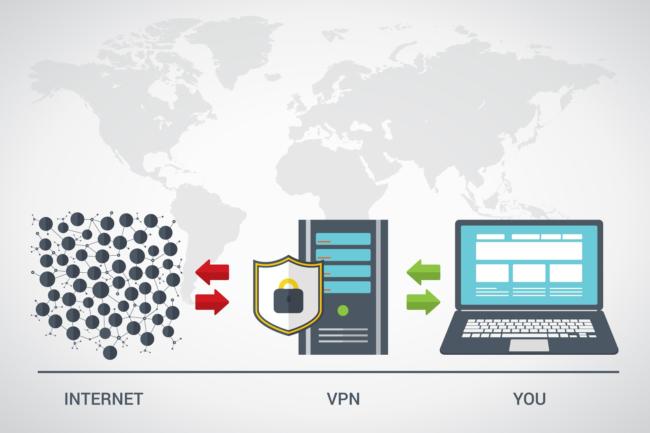Guest post by Mirza Silajdzic
One of the most difficult years in recent memory is now in the past. 2020 will be remembered as the year of big shifts in the way people live, not to mention the unprecedented global frustration due to isolation. With so many escaping big cities, like London, with strict lockdowns, working from home or even working from anywhere, the way people interact with the world will be very different in the foreseeable future. Society’s coexistence with technology and dependence on it has also had to completely change, in a short span of time.
Welcome Back, Travel!
On another note, 2021 is now here, and travel seems to be back (well, to an extent)! The need to travel, whether that be for business or pleasure, has never been more in demand. Travel is slowly becoming more accessible for most, and there has probably never been a time where more people are online clicking through airline and accommodation websites. In times like these, another priority is saving money wherever possible. One of the top concerns for people is to be frugal now, especially when it comes to accommodation or airfare of course! There are obvious ways of saving on hotels, such as reserving early, making use of deals, and booking off-season when prices are low. What about the not-so-obvious ways of saving much needed cash? Well, good news!
That is why it is important to look at how to make the best out of technology when it comes to savings -some of this information will be quite surprising! With the Airbnb revolution, hotels are not as popular as they once were, nor were they ever the everyman’s option. An endless list of hidden fees can also put people off from booking a hotel. However, there is a way to save some much needed cash, sometimes even a shocking amount, and stay at that nice hotel. Why not do some digging to reap the benefits?
How does one go about reaping these benefits? Well, it turns out that it isn’t complicated at all, and anyone who is familiar with a computer can do it. What is the secret? Well, there is software out there that is easily accessible nowadays called a Virtual Private Network (which is widely used today), and there is a wealth of knowledge online regarding VPNs too!
What is a VPN?

MaDedee/Shutterstock.com
A Virtual Private Network, or simply abbreviated as VPN, is an indispensable software tool that is easily accessible online. A VPN is like a tunnel between the user and the rest of the internet. Once a VPN is installed, the user will connect to one of the listed connection points, which will act like a safehouse for their internet activity. Basically, a VPN puts itself between the user and the rest of the internet. VPN software is designed to do the following;
- Give the user anonymity from the rest of the internet via encryption
- Make it safer to browse the internet and safer for financial information
- Give the user the ability to change the internet connection location
These are the three general categories explaining what a VPN does, but the third point is the trick. For a user to ‘crack the system’ and make some satisfying savings, the bit about a VPNs location-changing ability is gold!
How a VPN Saves You Money on Hotel Bookings

Dean Drobot/Shutterstock.com
Now, it’s time to understand how exactly a VPN allows for significant savings by allowing the user to artificially change their location (changing their IP address, or their computer’s digital location). So, it’s crucial to think about how hotels/booking websites adjust their prices online. These adjustments vary according to;
- The user’s location
- The user’s local currency
- The user’s browser cookies
Now, what does this mean? Well, these three things are what hotel booking websites (online travel/hospitality industry in general) will look for to determine how much they will charge! The booking sites will analyze most of all the location, and browser cookies (internet history, what has been booked before) of the user to adjust their prices. So, what are some steps to take to find a lower price for that lovely getaway?
- Install a trustworthy VPN (free or paid versions available)
- Connect to a country/city of your choice
- Install a privacy-oriented browser
- Clear browser history before researching bookings/accommodations
- Start researching bookings, and note down prices
The key is to compare and contrast findings in two sessions. One session should be with the VPN software off, and one with it on (with the list above in mind). So;
- Research booking prices on the website locally first, with the VPN off
- Then connect to another country (or city) via VPN and repeat the process
- Try alternating between departure/arrival locations
- Try other continents, far away locations
- Try low-income countries
- Try random locations
It is not uncommon to find shocking differences in prices for the exact same hotel or travel package when the user’s location is changed.
Final Thoughts…

Dragon Images/Shutterstock.com
Hopefully, these tips will result in some interesting savings (sometimes in the hundreds, or even thousands!) on top of hotel prices that may already be lowered. It is also possible to check if prices vary by changing the version of the booking website! For example, if the website’s suffix is .com, change it to co.uk, or something else and check if prices vary there as well.
At the end of the day, one needs to do a bit of research, noting down prices and turning VPNs on and off to see if there are savings to be had. It is indeed a finicky process, but anything that leads to savings is worth doing. Finally, it is always important to use this general practice checklist to stay secure while using that VPN;
- Use a privacy-oriented browser in incognito mode while browsing
- Always book in your browser’s ‘incognito’ or ‘private viewing’ mode
- Make sure that VPN usage is not banned in your country!





